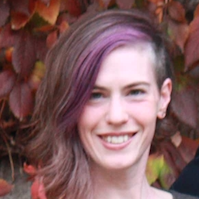
Dr. Rachel Ulfers, ’05, Makes Gift to Support Diversity in Physical Therapy
Rachel Ulfers, ’05 DPT, knew she wanted to be a physical therapist well before she started applying for graduate programs. Her positive experience with physical therapy as a teenage patient led her to the field.
“As a teenager, I was seen for an overuse injury from playing multiple sports. My experiences were fun and never the same day to day. This led me to heal quickly and later volunteer, then work at the clinic where I was treated,” she said, reflecting on her choice to enter the field. “Physical therapy is based on the education of the patient, and their care is oftentimes in their own hands. Empowering a patient to care for themselves and improve their own quality of life is very rewarding.”
When the time came to choose a program, Dr. Ulfers knew that she wanted to call the University of Minnesota Medical School’s Department of Rehabilitation Medicine home. Not only was she an avid Gophers fan, but her father also worked at the University for many years – making it a second home. The fact that the Doctor of Physical Therapy program is well-respected and distinguished in the field, according to Dr. Ulfers, was simply an added bonus.

Once she entered the program, Dr. Ulfers was thrilled to find that faculty members were compassionate and well-connected. She recalls never seeing a shortage of mentors to guide students and answer their questions. Students were encouraged to be inquisitive and innovative in how they approached problems, and she fondly remembers practical labs with her classmates where patient and clinician interactions were acted out in an often amusing (and, she admits, sometimes embarrassing) way. She encourages current and prospective students to nurture these relationships and focus on building similar relationships with their patients.
“This profession is truly an art combined with science. It is based on interactions with patients combined with logical and analytical problem-solving. You cannot get by with just science alone, but must build relationships to get patients to buy in to what you are trying to teach them,” she said “Being empathetic and compassionate to your patients’ experiences is critical to success as a physical therapist.”
These relationships and patient connections are part of what led Dr. Ulfers and her partner to make a meaningful gift to the program. They are both passionate about diversity efforts in the field.
“The murder of George Floyd and the recent turmoil were the impetus for us. Changing the designation of our giving was an easy choice after that,” she said. “Traditionally, our profession is very white and cis-gendered. Yet, there is a great amount of value in being treated by somebody and seeing somebody in a professional setting that looks like you and might share experiences with you.”
Her hope is that their gift, and similar gifts from fellow alumni, will lead to a world where patients seek treatment and instantly feel more comfortable as they interact with clinicians that are able to share in their lived experiences.
For information on how you can support the Medical School’s diversity, equity and inclusion initiatives, contact Carrie Albers of the University of Minnesota Foundation at albersc@umn.edu.